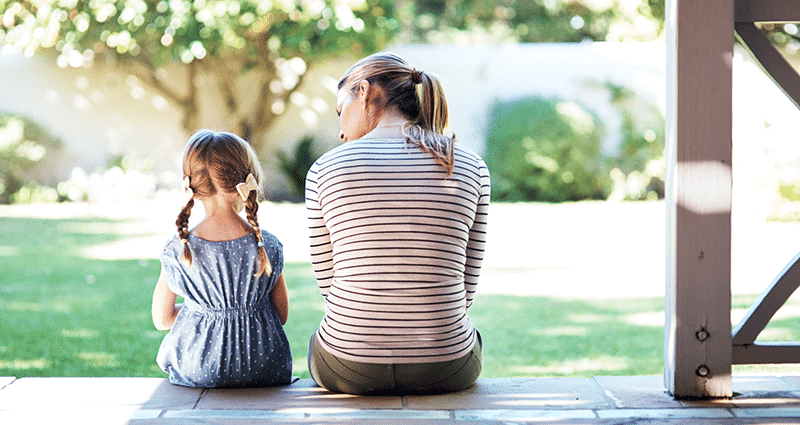Grief is a deeply personal journey, and it’s one many children must face.
The impact of childhood grief in our region is staggering. In Mississippi, 1 in 8 children will experience the death of a parent or sibling before turning 18. In Louisiana, the number is nearly as high, with 1 in 9 children facing such a profound loss.
These young hearts often carry their grief into every aspect of their lives, making it essential for families, caregivers and communities the support they need to heal.
Katie Gardner, LMSW, social work counselor, St. Dominic Hospital Palliative Care Service, offers insights on how families can support their kids in their grief.
Understanding Childhood Grief
Children process grief differently from adults, and their reactions can vary greatly. The National Alliance for Children’s Grief highlights these essential truths about grief:
- Grief is normal. It’s a natural reaction to the death of someone significant. Grief isn’t a problem to fix but an experience to live through.
- Mood changes are common. Even years after a loss, grief can resurface during milestones like holidays, graduations or anniversaries.
- Honest communication is key. While it’s tempting to soften harsh realities with phrases like “gone to sleep,” such euphemisms can confuse children. Using clear, age-appropriate language builds trust and helps children process their loss.
- Every child grieves uniquely. Grief may manifest in different ways, such as art, music or writing. Some children seek social support, while others may prefer solitude.
- Children need safe spaces. Many grieving children feel isolated or misunderstood. Encouraging open conversations about their loved one helps normalize their feelings.
How Adults Can Support Grieving Children
Adults can model healthy ways to cope with grief. Showing our own emotions honestly and creating an environment where children feel safe to express their feelings are key steps in fostering their healing.
Here are some ways to support grieving children:
- Acknowledge their grief. Validate their feelings and let them know it’s okay to feel sad, angry or confused.
- Be present. Consistent, supportive relationships help children feel secure.
- Normalize the grieving process. Explain that grief doesn’t have a timeline, and it’s normal to feel waves of sadness even years later.
Resources for Families
Navigating childhood grief can feel overwhelming, but you don’t have to do it alone. Many resources are available, both online and in person, to guide families through the grieving process. Organizations like the National Alliance for Children’s Grief provide practical tools and support for caregivers and children alike.
In addition to NACG, resources for childhood grief include The McClean Fletcher Center in Jackson and The Dougy Center in Portland, Oregon.
Grief knows no timelines, and healing is a lifelong journey. By equipping ourselves with knowledge and compassion, we can help children find strength and healing in the face of loss.
A relationship with your pediatrician can help you navigate the challenges of childhood grief. Connect with an exceptional provider near you:
-
Find a pediatric provider in Baton Rouge.
-
Find a pediatric provider in Acadiana.
-
Find a pediatric provider in Greater Jackson.
-
Find a pediatric provider in Northeast Louisiana.
-
Find a pediatric provider in Bogalusa.




